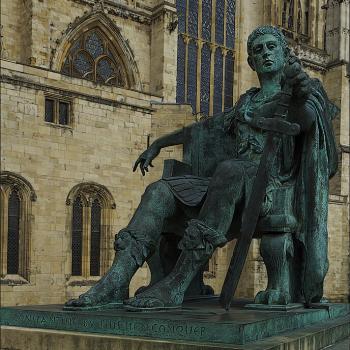Hannah immediately responds to Eli's accusations of drunkenness by saying, "No, my lord, I am a woman deeply troubled." (One might have imagined that a priest would be on the lookout for troubled persons alone in the sanctuary.) "I have drunk neither wine nor anything alcoholic; I have been pouring out my life to YHWH! Do not think of your servant as an evil woman, for I have been speaking out of great anxiety and anguish all this time" (1 Sam. 1:15-16). Hannah has freely opened up the truth to Eli, but all the priest can respond with is, "Shalom; may the God of Israel grant the petition you have made" (1 Sam. 1:17). He does not even ask her what the petition is! A poor, pathetic priest!
Hannah is convinced that YHWH has heard her and will respond. She utters a perfunctory "may your servant find favor in your eyes" to the foolish priest as she hurries from the sanctuary. After morning worship, the family returns home, and she and Elkanah have a rich sexual encounter that results this time in her pregnancy.
But the story has one more twist. She is the one who names the child—that is usually the father's duty—but her naming raises questions. "She named him Samuel, for she said, 'I have asked him of YHWH.'" But the name "Samuel" does not have that meaning at all. Samuel means "God hears." In truth, the name Saul is much closer to the meaning of "ask."
What are we to make of that confusion? Is the narrator playfully introducing the character who will bedevil Samuel for much of the final years of his long life? Is Samuel so inextricably connected to the first king of Israel, the enigmatic Saul, that even at his naming the king lurks below the surface of the story? As usual in the stories of the Hebrew Bible, simple and tiny stories are neither simple nor turn out to be so tiny.
Here is one more instance where we are told that the unexpected, the marginalized, the overlooked may, in the power of God, become "the chief cornerstone." It is a lesson we all need continuously to relearn.





